In the culinary world, molasses is prized for its rich, sweet, and slightly smoky flavor, often used in baking and savory dishes. Extracted in sugar crystals from sugar cane or sugar beets, you can find molasses in baked goods and classic dishes like baked beans and shoofly pie.
But what if you are out of molasses? Don't worry; we will share the best molasses substitute alternatives below so you can resume whipping up delicious dishes.
What Is Molasses
Molasses is a dense, dark syrup generated as a byproduct in sugar-making. It's created when sugar cane juice or sugar beets are boiled, and their juices are extracted and crystallized into sugar. Rich in flavor, molasses varies from light to dark and is used in baking, cooking, and as a sweetener.
Types Of Molasses
Light Molasses
Commonly referred to as "mild" or "sweet" molasses, this variety represents the lightest version and is obtained through the initial boiling of sugarcane juice. It's sweet and mild in flavor, ideal for baking.
Dark Molasses
Obtained after the second boiling, dark molasses is thicker, less sweet, and more robust than light molasses. It's commonly used in gingerbread and other rich-flavored recipes.
Blackstrap Molasses
This represents the most concentrated form, derived after the third boiling in the production process. It's the thickest, darkest, and least sweet, with a bitter taste. Blackstrap molasses is noted for its high mineral content, especially iron, and is often used as a health supplement.
Sulfured and Unsulfured Molasses
Sulfured molasses is created by processing young sugarcane with sulfur dioxide during extraction, while unsulfured molasses is derived from mature cane without the inclusion of sulfur. Unsulfured molasses is generally preferred for its purer taste.
The 12 Best Molasses Substitutes To Try
Honey
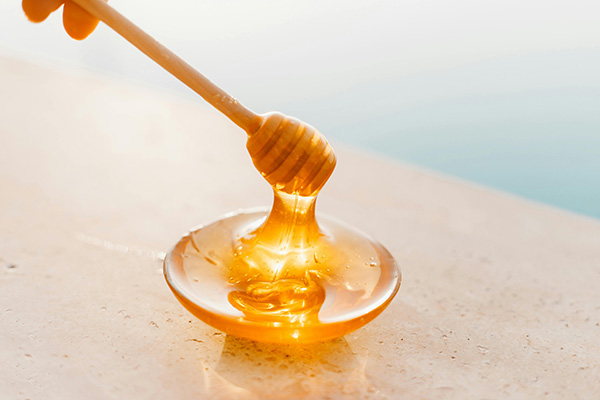
Honey is an exceptional molasses substitute in various culinary applications, offering a unique combination of sweetness and depth. This liquid sweetener stands out primarily for its natural sweetness and smooth texture, making it an ideal alternative in recipes that call for molasses. Honey's flavor is milder and more floral than the robust, earthy tones of molasses, which can be advantageous in dishes with less intense sweetness.
Honey can be used in a one-to-one ratio as a substitute for molasses in most recipes. This includes baking, where honey's moisture-retaining properties can yield softer baked goods. It's also a great choice for marinades and sauces, offering a delicate balance of sweetness without overpowering other flavors. Additionally, honey's natural origin and the variety of flavors available, depending on the nectar source, provide an added dimension of taste.
Maple Syrup
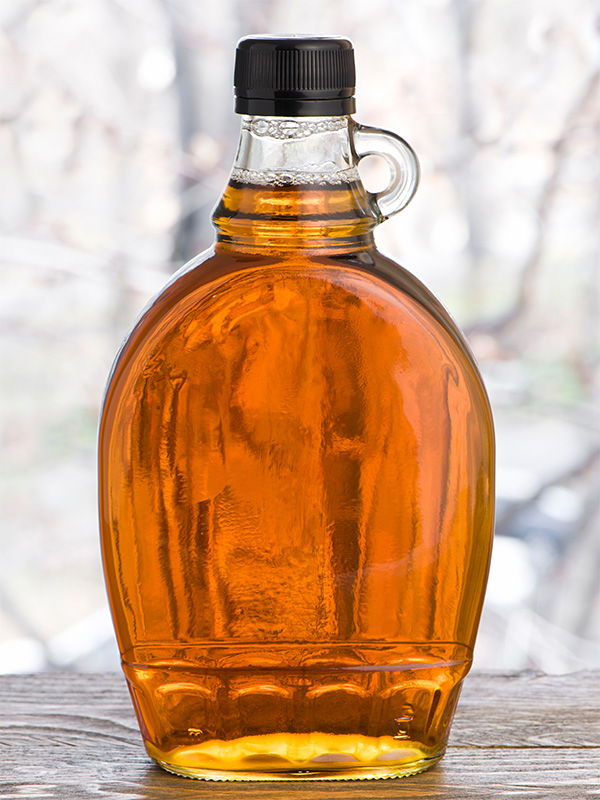
Maple syrup is an excellent molasses substitute thanks to its rich, sweet flavor and smooth consistency. Harvested from the sap of maple trees, this natural sweetener boasts a unique taste profile, slightly different from the deep, earthy tones of molasses, yet equally robust.
You can substitute molasses with equivalent maple syrup. This one-to-one replacement works well in various culinary contexts, from baking to glazes, offering a less intense but still flavorful alternative. The versatility of Maple syrup is a significant advantage, as it blends seamlessly into sweet and savory dishes. Maple syrup's lighter flavor profile is especially beneficial in baked goods, imparting a delicate, almost caramel-like sweetness without overwhelming other ingredients.
Dark Brown Sugar
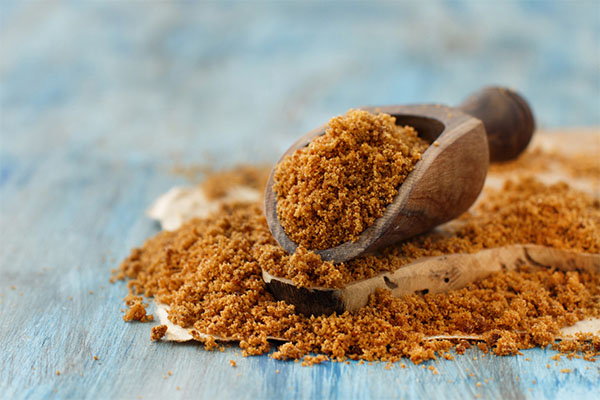
Dark brown sugar is a compelling substitute for molasses, mirroring its rich sweetness and moisture content. This sugar, enhanced with a higher concentration of molasses, offers a deep, caramel-like flavor, making it ideal for recipes requiring the distinct flavor and texture of molasses. However, dark brown sugar can have a stronger molasses flavor.
Use an equal amount of dark brown sugar as a substitute for molasses to maintain the recipe's intended flavor and moisture balance. This one-to-one substitution is particularly effective in baking, where dark brown sugar contributes to the softness and color of cakes, cookies, and bread. Additionally, it works well in sauces and marinades, adding a depth of flavor.
Light Brown Sugar
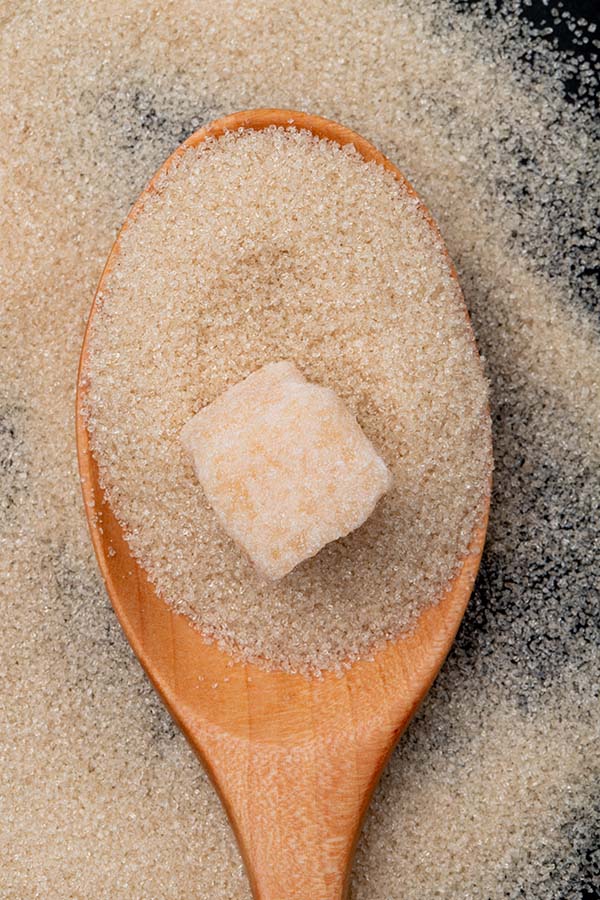
Image by stockking on Freepik
Light brown sugar, a blend of white sugar, and a small amount of molasses stand as an excellent substitute for molasses, particularly in recipes that call for a subtle molasses flavor. Its milder, sweeter taste, compared to dark brown sugar or pure molasses, makes it ideal for dishes where a gentle hint of caramel and moisture is desired.
When substituting light brown sugar for molasses, use it in a one-to-one ratio. This ensures that the sweetness and moisture levels in the recipe remain balanced. This substitution works wonderfully in baking, where light brown sugar can contribute to the tenderness and color of baked goods like cookies, muffins, and cakes without the stronger flavor profile of molasses. It's also effective in marinades and sauces, adding a delicate sweetness and improving texture.
Date Syrup
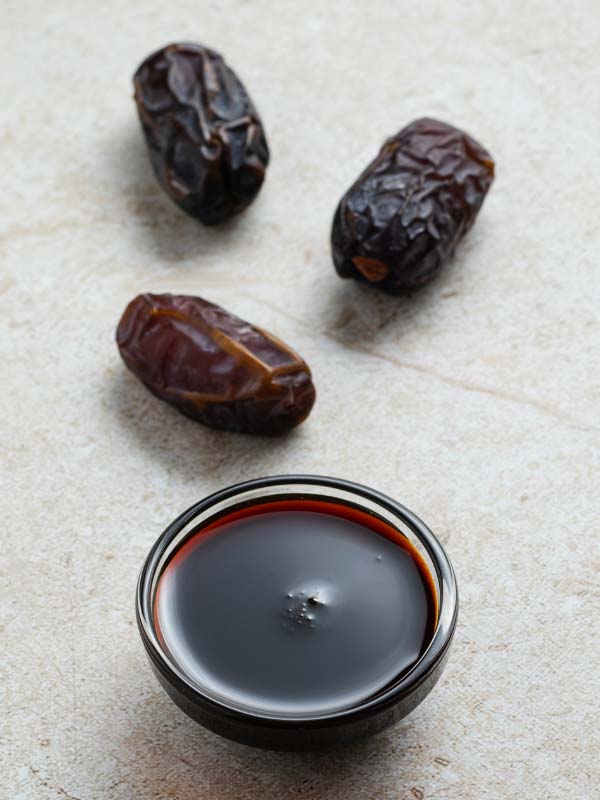
Date syrup, a natural sweetener made from concentrated date juice, is an exceptional molasses substitute in many recipes. Its rich, fruity sweetness stands out, closely mimicking molasses' deep, robust flavor.
Date syrup's texture is similar to molasses, ensuring it can seamlessly integrate into recipes without significantly altering the consistency. When making substitutions, replace molasses with an equal quantity of date syrup. This one-to-one ratio works well in baked goods like cakes and cookies and in savory dishes like marinades and sauces.
Additionally, date syrup has a lower glycemic index, making it a preferable option for those monitoring their sugar intake while still providing the rich, sweet flavor characteristic of molasses.
Pomegranate Molasses
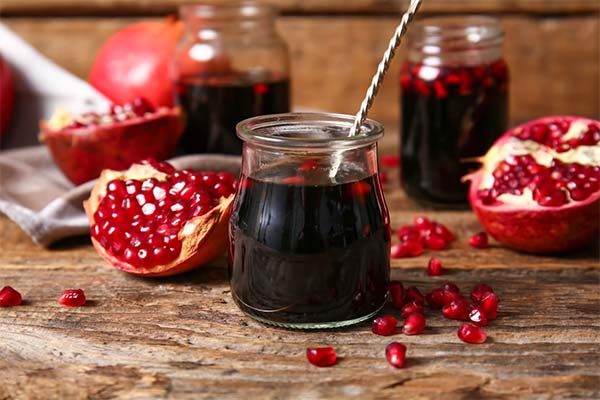
Pomegranate molasses, a concentrated syrup from pomegranate juice, is a superb alternative to conventional molasses. Its unique flavor profile, combining tangy and sweet notes, makes it particularly suitable for various culinary applications. Unlike regular molasses' deep, earthy sweetness, pomegranate molasses offers a fruitier, slightly tart edge, adding a complex layer of flavor to dishes.
When used as a molasses substitute, starting with a smaller quantity of pomegranate molasses is advisable, as its acidity and sweetness can be more intense. A good rule of thumb is to use half the amount initially and adjust to taste. This versatile ingredient is particularly popular in Middle Eastern cuisine, lending a distinctive flavor to traditional dishes.
Golden Syrup
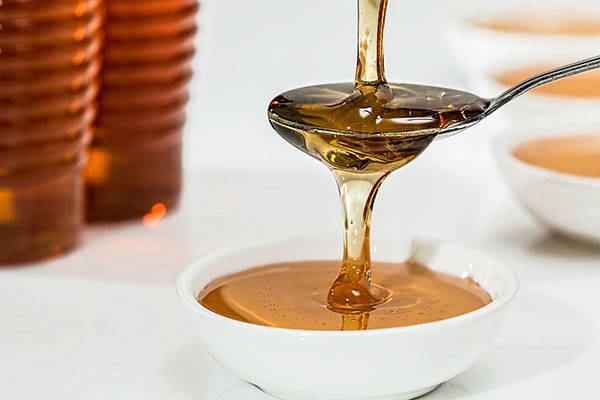
Golden syrup, also known as "light treacle", is a thick, amber-colored syrup made from cane sugar and is an excellent substitute for molasses in many culinary contexts. Its smooth texture and buttery, light caramel flavor make it a versatile sweetener, offering a milder alternative to molasses' intense, bittersweet taste.
When used as a molasses substitute, use a one-to-one ratio. This direct substitution works well in recipes such as cakes, cookies, and even savory glazes, where its subtle sweetness and rich texture can enhance the dish without altering its intended flavor profile.
Agave Nectar
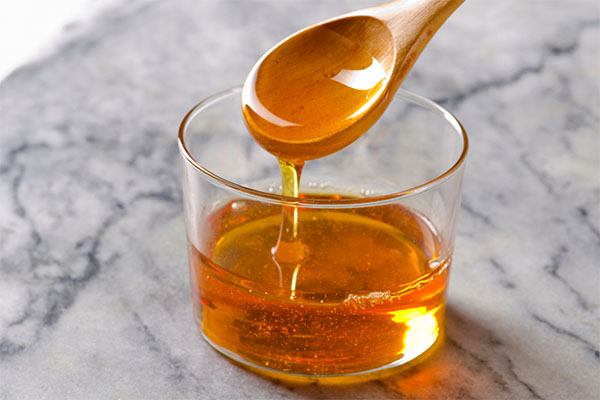
Agave nectar, a natural sweetener derived from the agave plant, is an excellent substitute for molasses, offering a lighter, more neutral flavor. Its clean, mildly sweet taste and fluid consistency make it a versatile option, particularly effective in recipes where a less overpowering sweetness is desired.
Agave nectar is sweeter than molasses, so when used as a molasses substitute, it's advisable to use about three-quarters of the amount of molasses called for in the recipe. This adjustment helps maintain the desired sweetness level without dominating the other flavors in the dish. Agave nectar works exceptionally well in beverages, dressings, and sauces, where its liquid form easily blends in and in baking, where it can add moisture and sweetness. Moreover, the lower glycemic index of agave nectar makes it a favored option for individuals seeking to regulate their sugar consumption.
Coconut Sugar
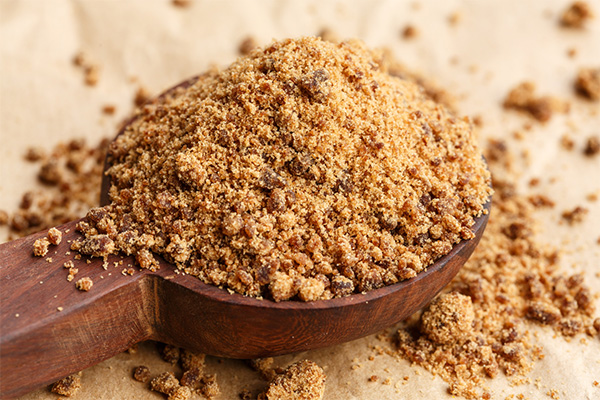
Coconut sugar, sourced from the sap of coconut palm flowers, stands out as an excellent substitute for molasses in various culinary applications. Its natural, rich sweetness, coupled with a subtle hint of caramel, makes it a versatile sweetener, closely resembling the flavor profile of molasses.
Use a one-to-one ratio when substituting for molasses. This direct replacement works effectively in cookies, cakes, and marinades, providing a similar consistency and sweetness level.
Coconut sugar is also a healthier alternative, with a lower glycemic index and a richer mineral content, making it suitable for those seeking more nutritious sweetening options. Its use in recipes preserves the desired taste and texture and adds a nutritional boost, making coconut sugar a valuable and tasty alternative to molasses.
Barley Malt Syrup
Barley malt syrup, a dense and dark syrup derived from sprouted barley, is a superb option for individuals desiring a less sweet alternative with a more pronounced malt flavor than molasses. Its distinctive malty flavor and natural sweetness closely resemble molasses' deep, rich taste, making it particularly suitable for recipes with a robust flavor.
Barley malt syrup's consistency and flavor profile make it ideal for baking, especially bread, where it can enhance the dough's color and add a subtle, earthy sweetness. When substituting molasses, it is recommended to use an equal amount of barley malt syrup. Maintaining a one-to-one ratio ensures the recipe preserves its intended flavor and texture.
Rice Syrup
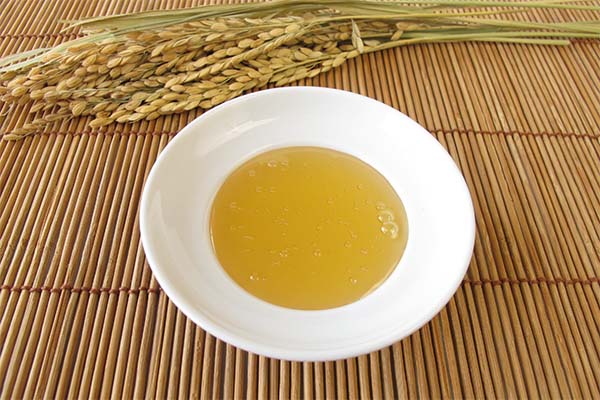
Rice syrup, also known as brown rice syrup, is made from brown rice and has a mild sweetness. It is derived from fermented cooked rice and stands out as a notable substitute for molasses, offering a milder, less intense sweetness. Valued for its understated, buttery flavor and velvety, syrupy texture, this natural sweetener is suitable for various culinary applications.
Unlike molasses' robust, deep flavor, rice syrup provides a gentler sweetness, which can be particularly advantageous in dishes where you want to avoid overpowering other flavors. When used as a molasses substitute, a one-to-one ratio is generally effective. However, some may prefer slightly increasing the amount of rice syrup due to its milder sweetness.
Sorghum syrup
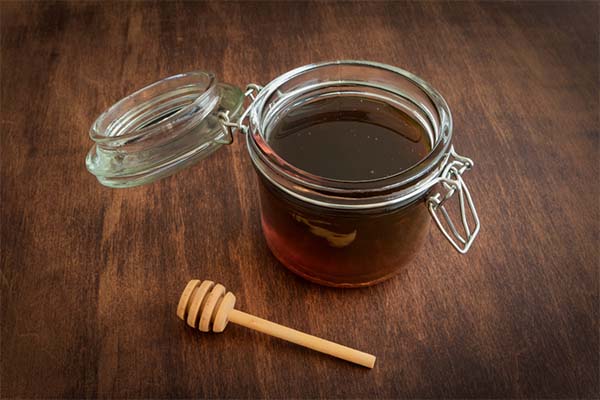
Sorghum syrup, derived from the sorghum plant, is an excellent substitute for molasses, especially in recipes with a similar depth of flavor. This natural sweetener, less common but highly valued in certain culinary traditions, offers a rich, earthy sweetness akin to molasses.
When replacing molasses with sorghum syrup, utilize a one-to-one ratio for an equivalent measure. This ensures that the overall flavor and texture of the recipe remain consistent. Sorghum syrup shines in baking, lending a distinct, robust flavor to bread, cookies, and cakes. It's also great in savory applications like barbecue sauces and marinades, where its unique taste can enhance the dish's complexity.
Not My Favorite
Dark corn syrup
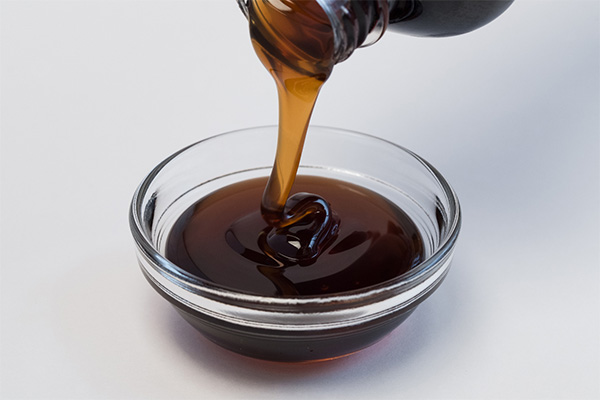
Dark corn syrup is a widely accepted alternative to molasses, providing a comparable thick consistency and sweet flavor. Though less robust than molasses, its deep, caramel-like taste can effectively mimic the desired characteristics in various recipes. This quality makes it particularly well-suited for baking, as it can contribute moisture and richness to cakes, cookies, and pies.
However, it's crucial to acknowledge that dark corn syrup may not be the healthiest choice. Corn syrup, especially high-fructose corn syrup (HFCS), is considered unhealthy due to its high sugar content and lack of essential nutrients. Frequent consumption of dark corn syrup has been associated with an elevated risk of obesity, type 2 diabetes, heart disease, and various health concerns.
Additionally, its high fructose content dark corn syrup may exert strain on the liver, potentially contributing to liver disease, not to mention the appealing caramel color derived from added artificial coloring.
Granulated sugar
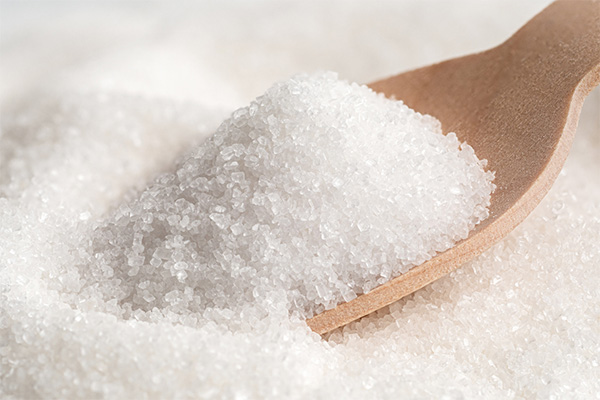
Granulated sugar can substitute molasses in recipes where sweetness is the primary goal, but it lacks the depth of flavor and moisture content of molasses.
However, granulated sugar is not considered a healthy choice because of its elevated caloric content and lack of nutritional value. It's purely sucrose, offering no vitamins or minerals. Additionally, it can lead to spikes in blood sugar levels, making it a less preferable choice for individuals with diabetes or those monitoring their sugar intake. Its lack of complex flavors and health benefits makes it less ideal than other substitutes.

